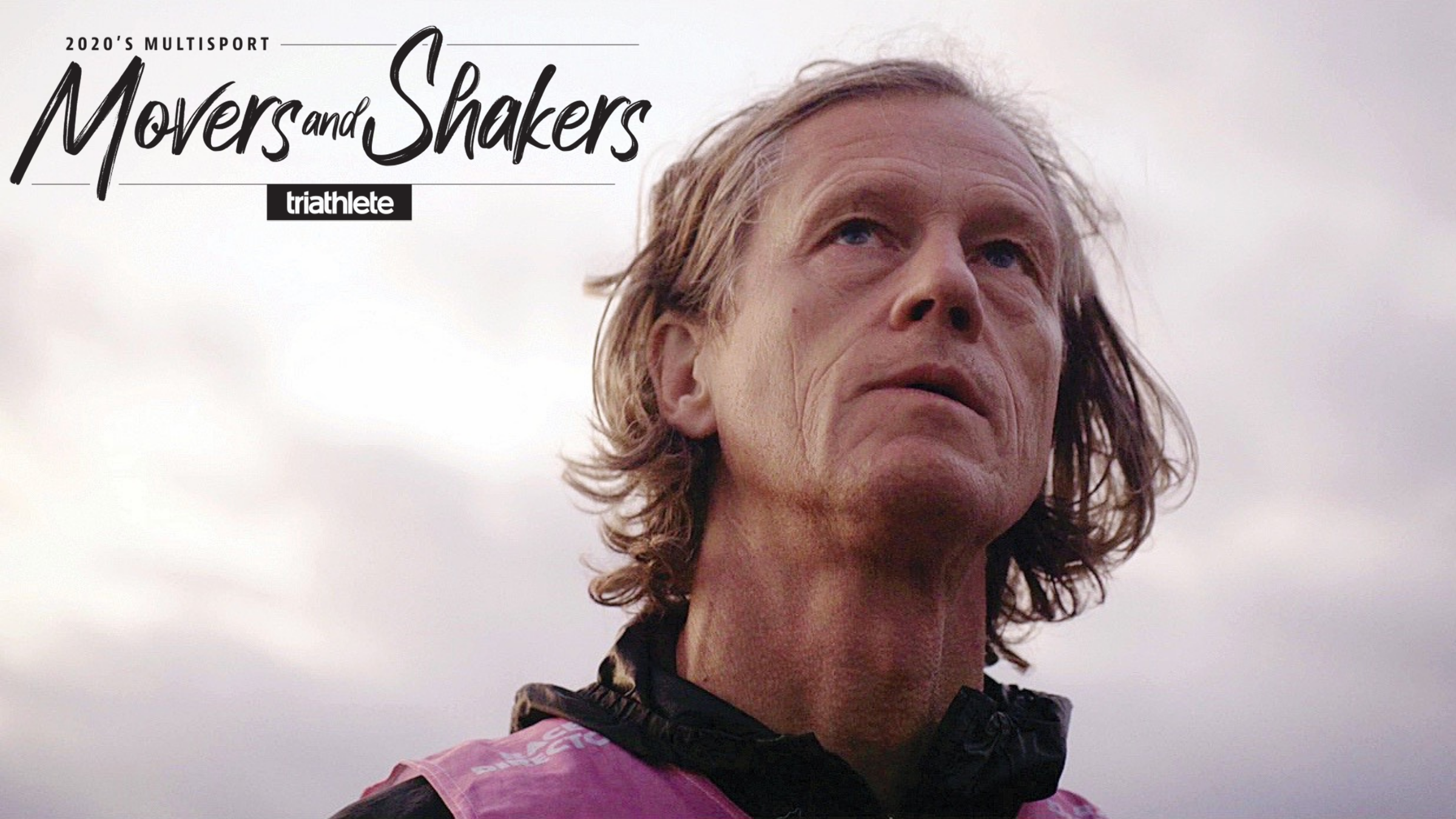2020’s Multisport Movers and Shakers: Michael Lemmel

After a very weird 2020, we’re (finally) now headed into 2021—but there are still a lot of questions left unanswered, in the world and in our sport. Who will help shape triathlon? Who are the people working in front of and behind the scenes to do exciting, new, or interesting things? Who should you keep your eye on in the next multisport year?
We racked our brains, scoured the tri-space, and came up with this varied list of multisport movers and shakers—all of whom we’re looking forward to watching in 2021. We can’t wait to see what they do and how they change the sport in the year ahead. We’ll be revealing one person at a time over the next two weeks, but Active Pass members can view the entire list right now. Today we’re highlighting
Michael Lemmel
53 | Älgö, Sweden
Co-Founder of ÖTILLÖ Swimrun
While Swimrun isn’t brand new, it’s been having a moment over the last few years—thanks in part to the adventurous spirit and freewheeling, creative format that has participants compete in teams (or sometimes solo) over swim and run legs of various lengths. Not only has Michael Lemmel co-created the successful ÖTILLÖ brand that finally landed on U.S. soil in 2020, but he was also one of the first race directors to restart multisport events during the pandemic with some unique solutions to new problems.
“We had a lucky break with ÖTILLÖ Swimrun Engadin where there was a window of opportunity that we took—at the price of having four of us in the production team take 10 days in quarantine in Switzerland to be able to put on the race,” he said. “We then adapted to the 50-person rule in Sweden and created an ‘ÖTILLÖ Final 15K’ concept with 50 people starting and finishing before the next 50 could do so. Over two days we had almost 300 racers race that way.”
Using tactics like spreading the race out over two days and having smaller “micro fields” race in waves, Lemmel and his team have been able to adapt—a typical trait of Swimrun athletes, along with their ability to persevere. “In essence, [it is a] fight for every way forward and learning from the losses,” he said of the ups and downs he’s faced as a race director during the COVID-19 pandemic. “A river always finds its way to the sea.”
For next year, Lemmel sees uncertainty on the horizon, but he’s hopeful while still taking his greater role as a producer of large events seriously during these pandemic times. “We will do whatever we can to put on responsible events without asking people to travel around the world,” he said. “We need to cater to local markets and Swimrun has come to the point where there is a local market.”
Lemmel’s insistence on safety and responsibility—and keeping events local—is a breath of fresh air, and Swimrun’s unique position works on getting people outdoors in novel ways. “More and more people have a desire to be in nature at the same time as less and less people have the skill set to be there on their own,” he said. “Through responsible events there is a platform to explore a wilder side than you would on your own.”
Related for Active Pass Members: The Complete List of 2020’s Multisport Movers and Shakers